“What’s in a name? That which we call a rose by any other name would smell as sweet.” Hundreds of years ago even Shakespeare understood the gravity of choosing or carrying a family name. Romeo struggled with the choice of giving his up and being with his forever love or hanging on to it and losing her altogether. Lucky for us, deciding what to do with your last name after marriage doesn’t have such grave consequences. It can however, be a tough decision for a couple to make. Names can hold cultural significance or help identify you as a proud member of a prominent family in your community. Long ago, there were hard traditional rules to the last name situation, but times have changed and now couples are choosing different routes altogether. So, if you and your partner are in this phase of merging your lives and trying to figure out what to do with the last names, just know that you don’t have to settle for tradition. Here are few ways couples are deciding to merge their last names.
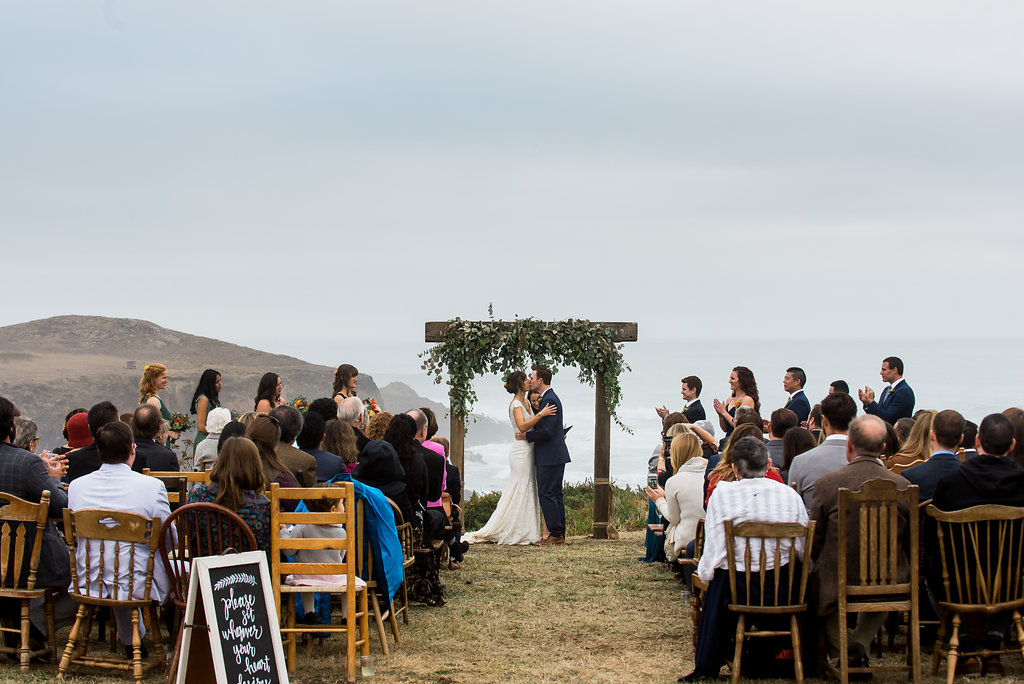
The Traditional Way
I know I started this by talking about non-traditional routes, but I thought it would be good to start with this one to lay the foundation. I think we all know the traditional way to handle your last name after marriage is having one partner take the last name of the other. In the past, it was the woman who would take her husband’s last name, however in essence it is just one partner deciding to replace their last name with the other partner’s. Doing this requires a lot more work than some of the other options including filing for a new birth certificate and social security card, changing your name on your driver’s license and passport, and of course paying the fees associated with those changes. There are other issues you may run into as well, if you go this route. For example, is if it is the husband who wants to take the last name of the wife or if you are a same-sex couple, things get a little trickier. In some states those two situations don’t allow couples to go through the standard marriage name change procedures. Instead you would need to file for a legal name change that requires petitioning the court and putting out a public notice which could cost you a few hundred bucks.
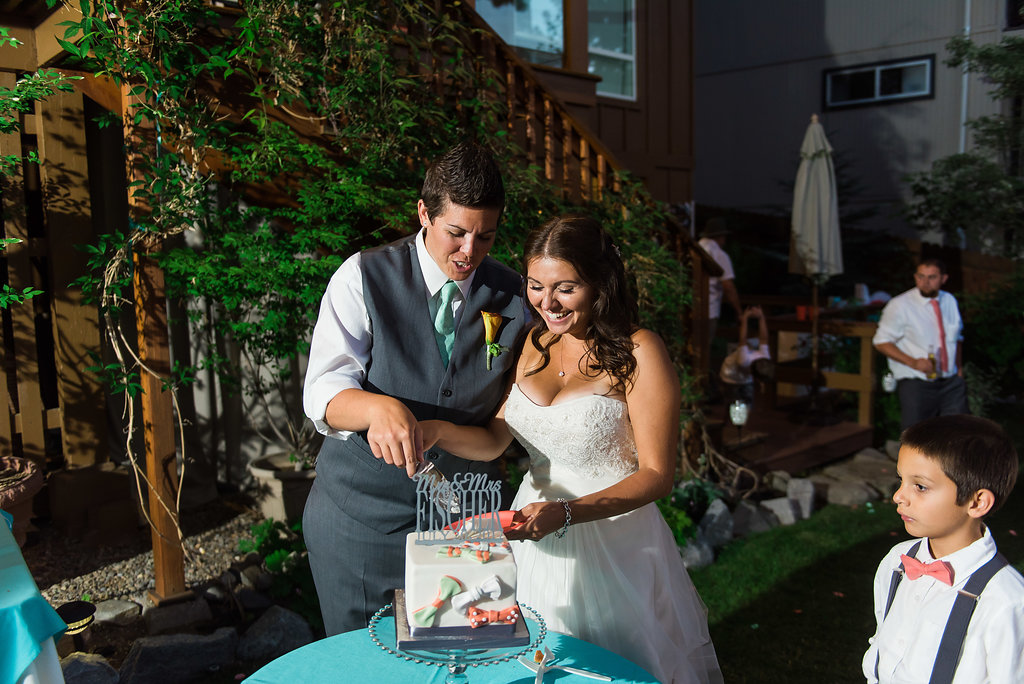
Keep Your Given Name
I mean, it’s yours after all. You have likely walked around with that name your whole life, it is nice and worn in and comfortable. It is who you are. That can be reason enough to keep your name, but there are a host of other reasons people decide to do this. The most common are for practical and professional reasons. Practically speaking its low-maintenance. You don’t have to make any changes or pay any fees. You just continue with your regular life after the wedding. Other people keep it for professional reasons. You might own a business and it carries your name, there’s no need to change that when you keep your surname. Or you have built a professional image around your name and its your personal brand. Changing it could be a marketing disaster. There are also familial or cultural reasons. A good friend of mine comes from a large Korean family who is very involved in their community. They have a unique last name, so when she introduces herself, people know who her family is and value what they have done in the community. When she got married, she wanted to stay connected with that culture of community support her family was known for, so she kept her family name.
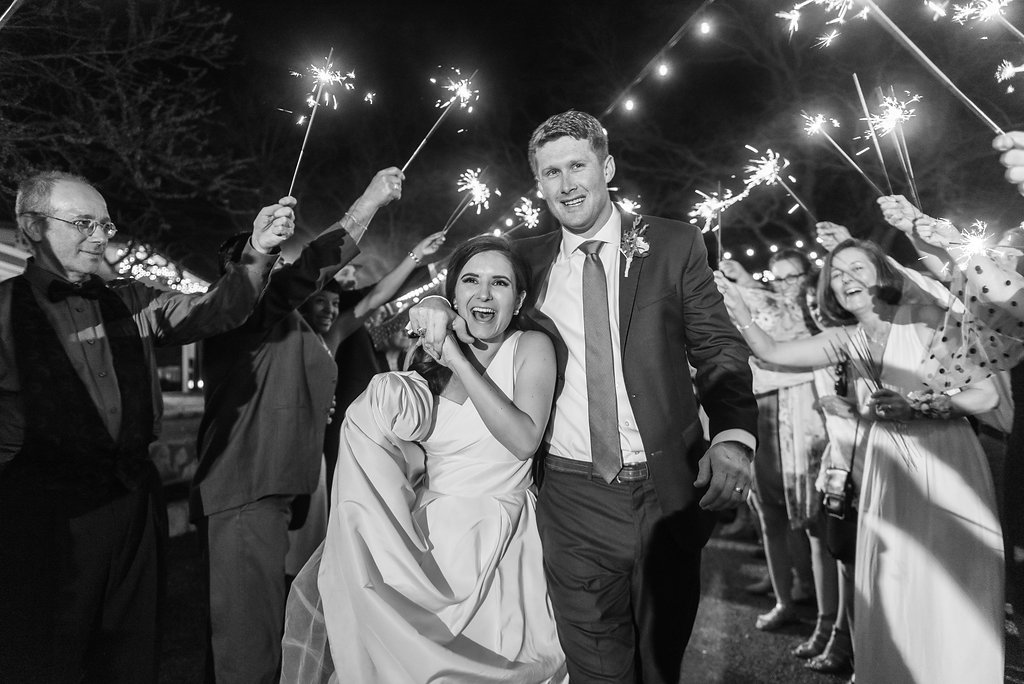
Add Punctuation/Hyphenate
This is probably the second most common way that couples choose to merge their last names. They just add a hyphen. Think “Jane Doe-Smith, or John Adams-Brown.” Rumor has it that even Jay Z has hyphenated his and Beyoncé’s surname to become Shawn Knowles-Carter since she doesn’t have any brothers and they wanted to carry the family name on. This is an easy way to have the best of both worlds.
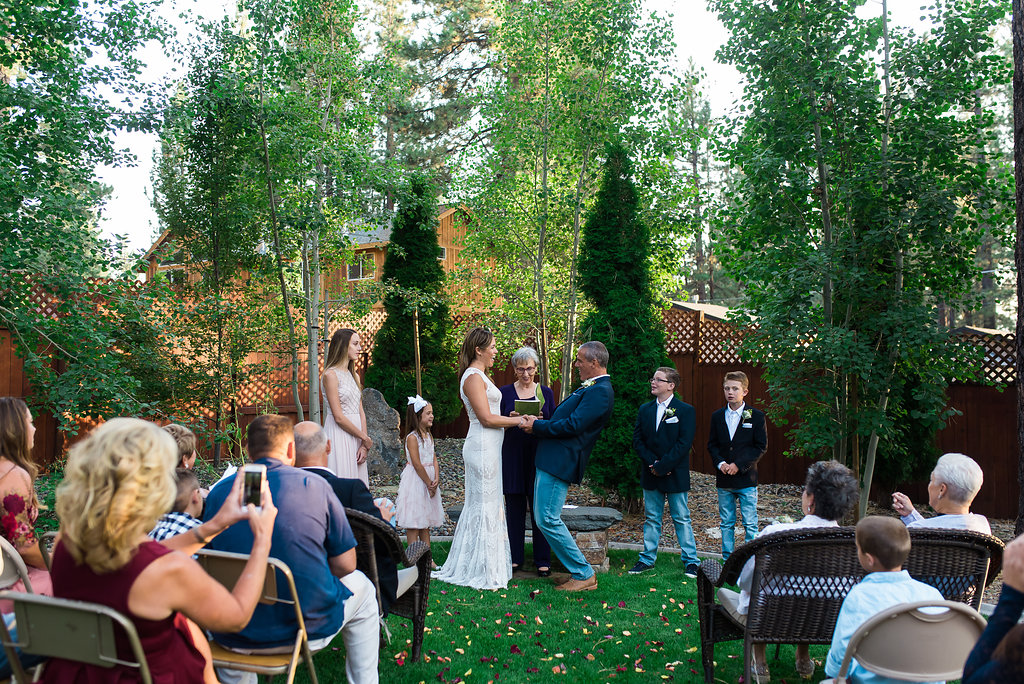
Create a New Name Altogether
Not only has this idea gained popularity in the last decade, but it just sounds awesome. Some couples have decided to ditch their given names altogether and come up with their own. They are using names they made up as kids or choosing to merge their two surnames (Dawson and Hobbs become Dobbs or Hawson), or simply choosing something that references mutual hobbies or passions, like my clients Sara and Will did: their new last name references one of their favorite Doctor Who episodes. Of course, this would likely require a legal name change and a few dollars in fees, but what I’ve heard from couples who have done this is that is prevents the need to choose one name over the other or to make your names extra long with hyphens.

Hopefully, this post gives you a solid list of options when deciding what to do with your surname after the wedding is over. And just as Shakespeare wrote many, many moons ago and much more eloquently than I can, no matter what you decide to do, a name doesn’t change who you are you’ll still be that perfectly sweet smelling rose no matter how you decide to sign.
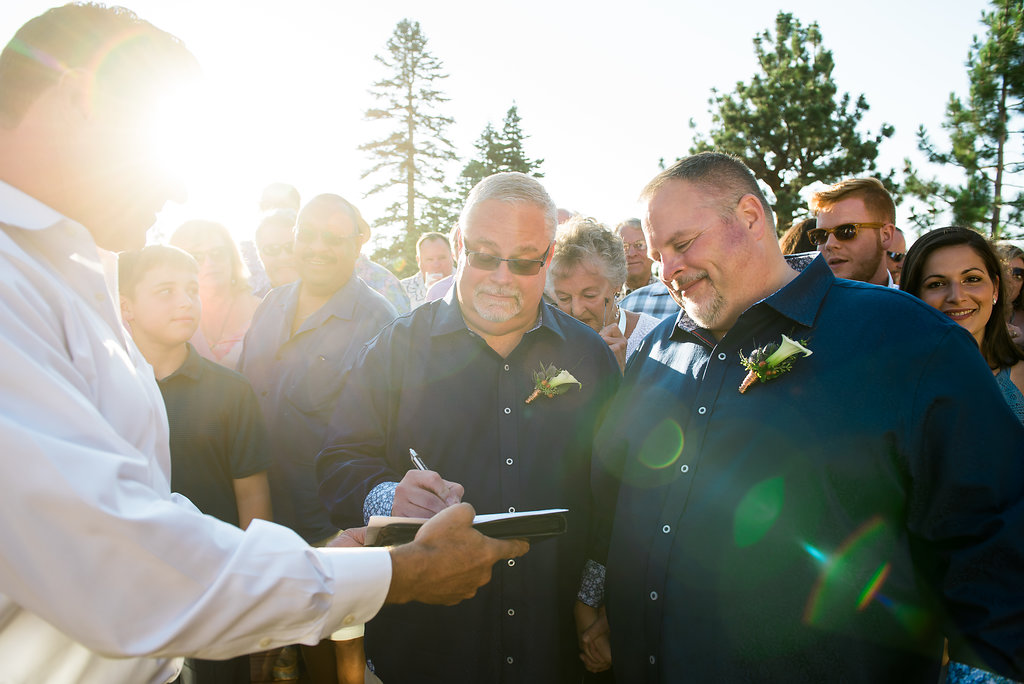
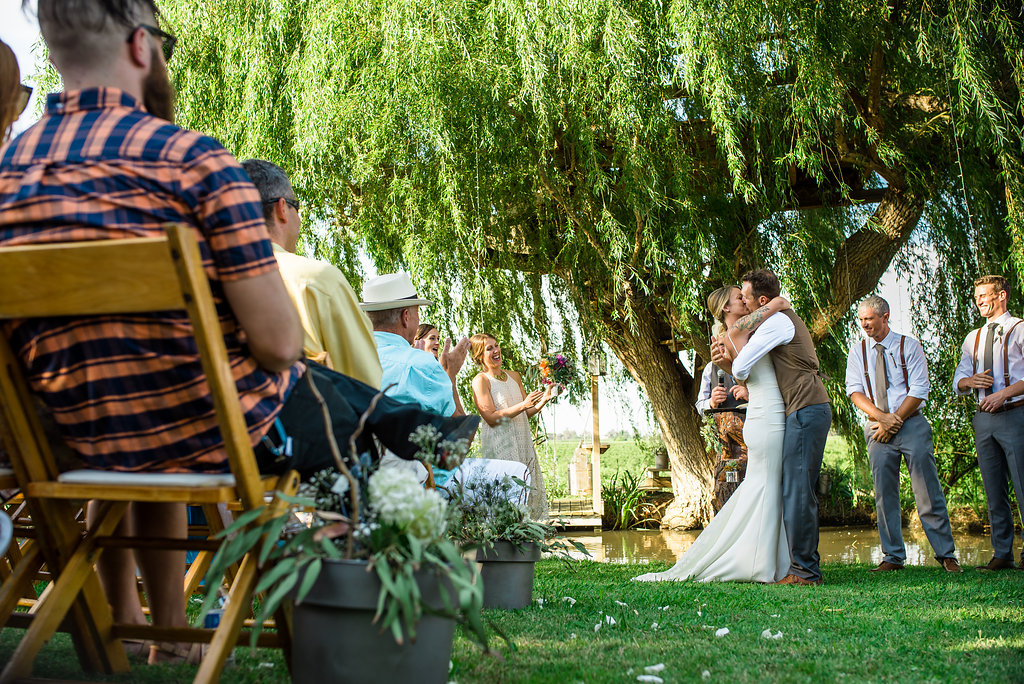
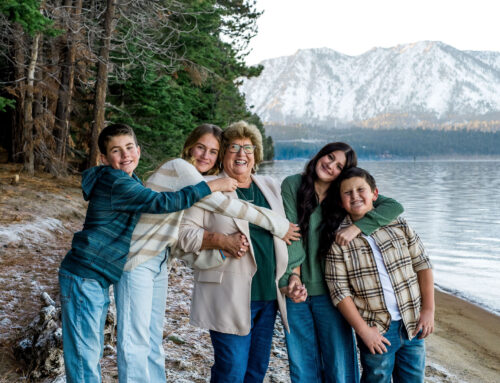


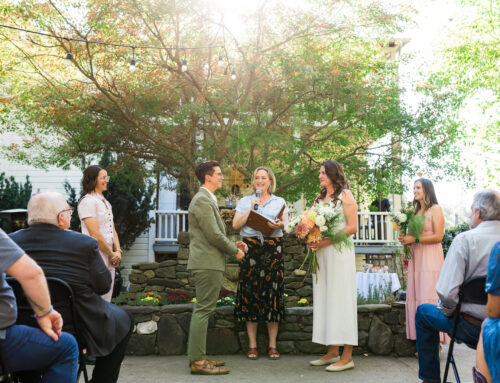
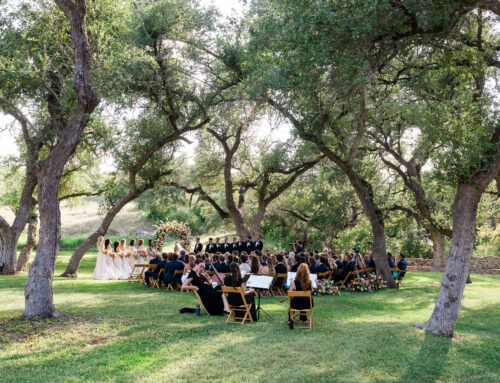
Leave A Comment